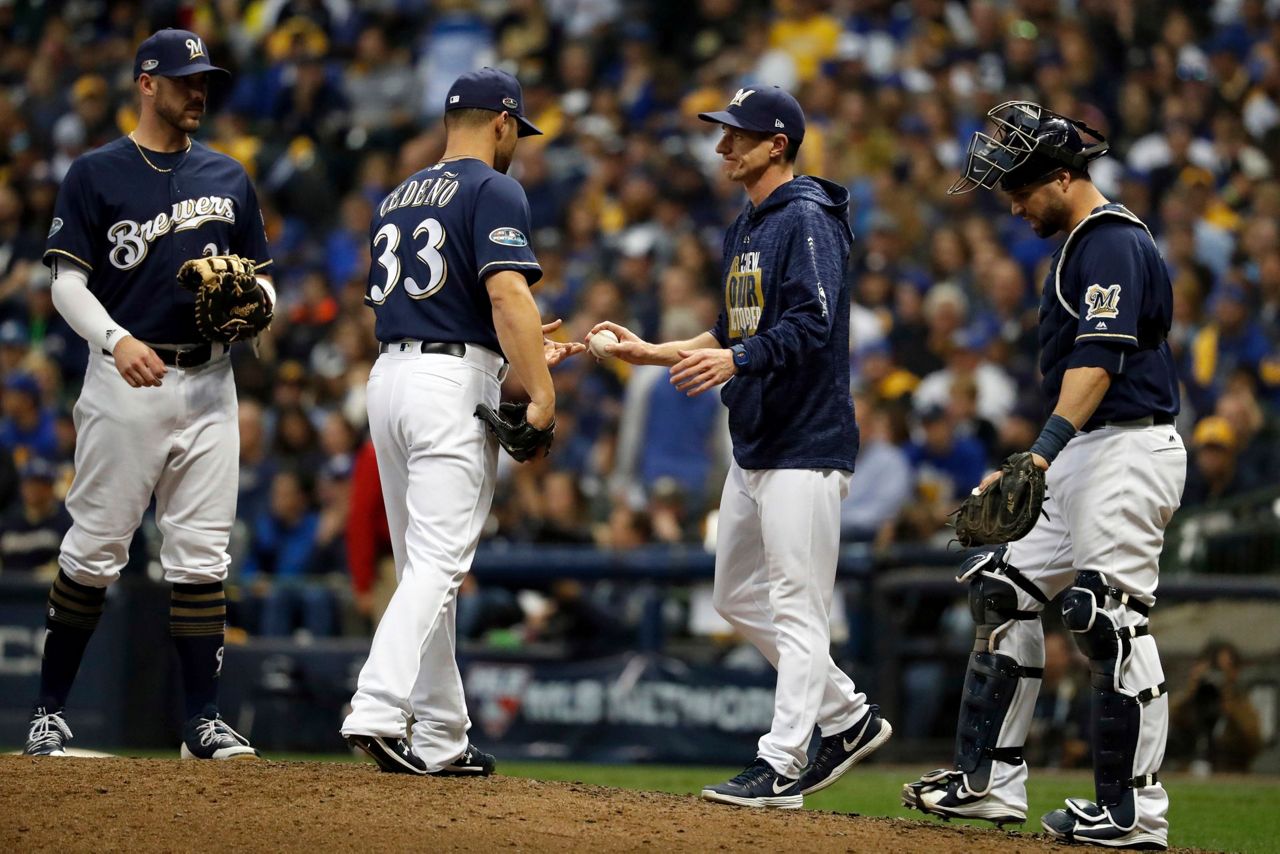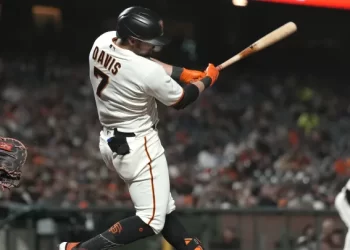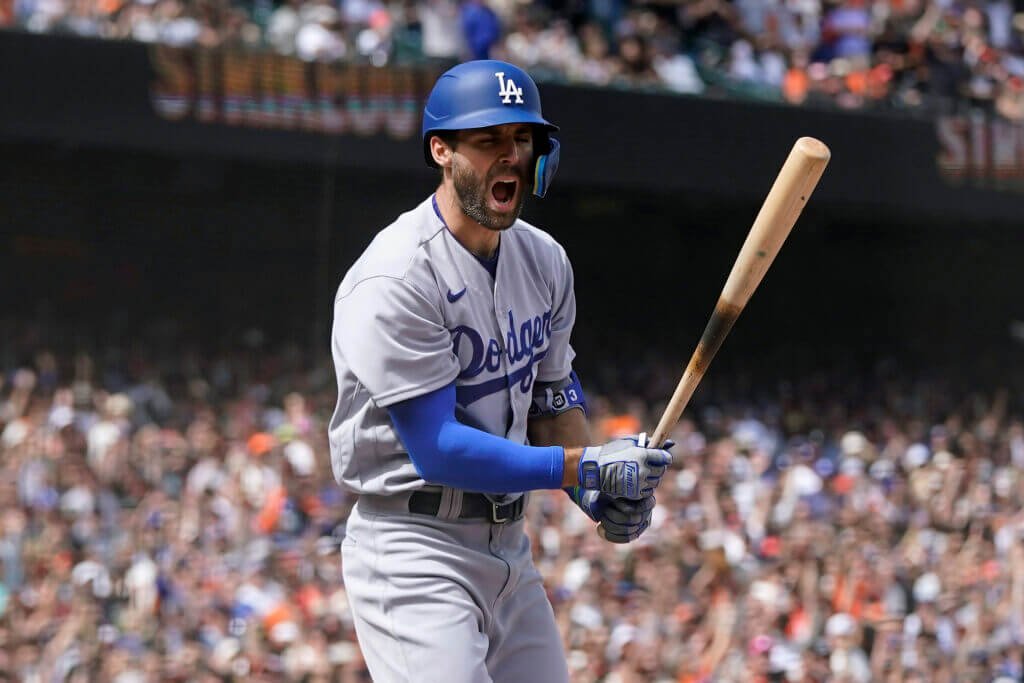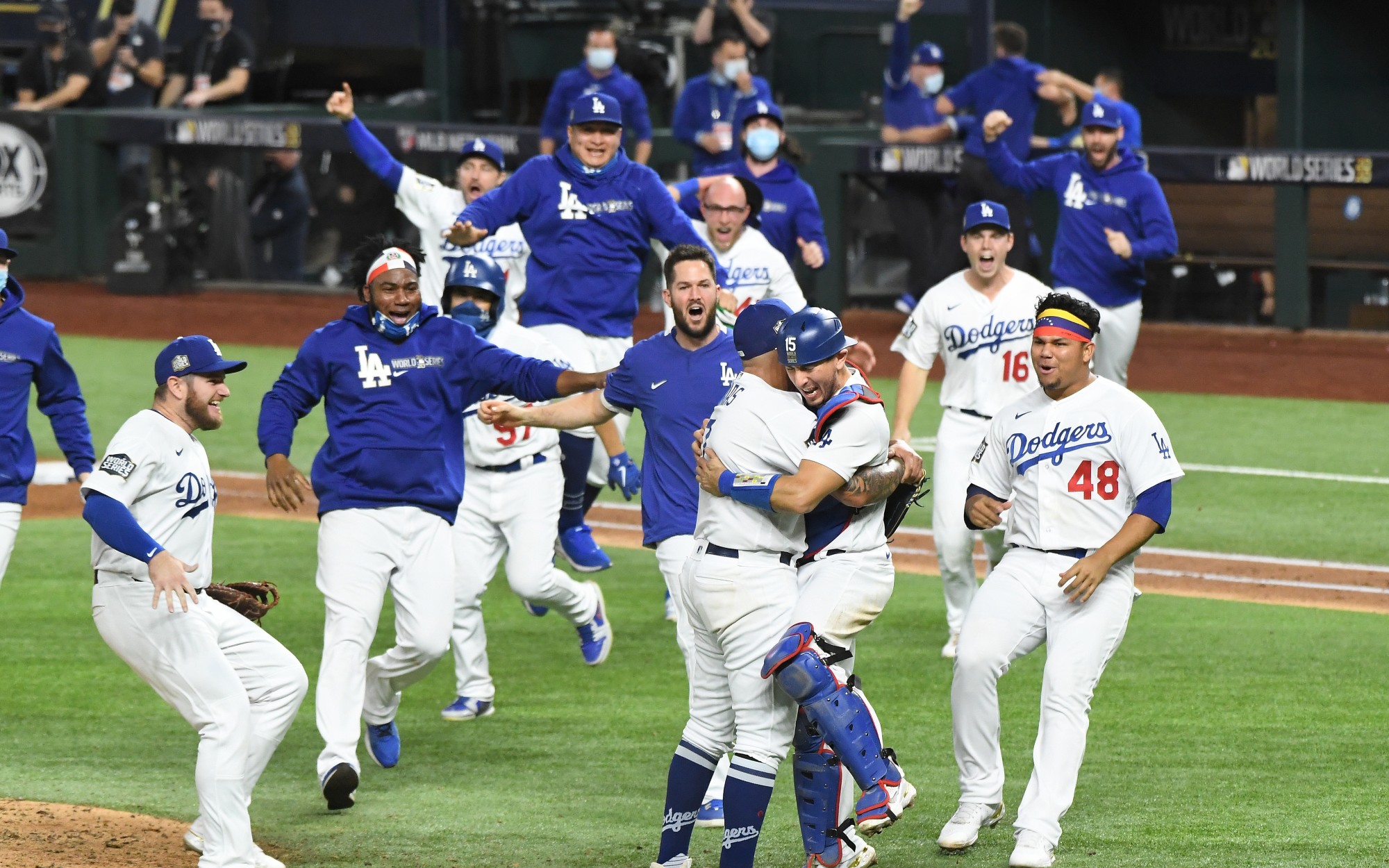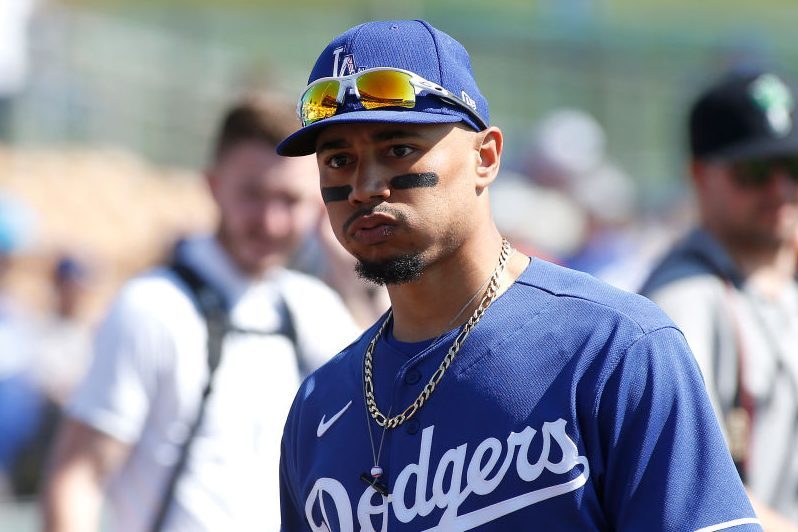By Jeffrey Newholm
“Just once in his life, a man has his time. And my time is now-I’m coming alive!” This line from John Parr’s St. Almo’s Fire has always filled me with wonder. But I don’t want my time to come too soon, because the rest would be boring! But can a city have a time too? Kansas City had two years of great play before tumbling back to last. The White Sox had one great year for the south side and now are completely forgotten. Now with the Brewers sweeping through the NL, the Cream City’s time may have come. But the storied Dodgers swung to even the series Saturday afternoon. The Brewers were definitely already alive, but will their time be up too soon?
Filing into glory
43,905 fans able to navigate a packed parking lot had plenty to cheer about early. Wade Miley, hardly known as an ace before 2018, covered 5 2/3 shutout innings. Franchise pillar Lorenzo Cain robbed a Dodgers home run. And the offense slapped in three seemingly deciding runs. In fact, in the sixth, the sun shone through the windows as if baseball’s God was smiling down on the long-struggling but much loved franchise. And many previous failures (2007, 2011, 2014, and many smaller stumbles) seemed irrelevant to Craig Counsell’s crew. But, as Cubs, Red Sox, and Indians fans have experienced so many times, tragedy always strikes when least expected. Otherwise, it wouldn’t be labeled disappointed, but a mere annoyance.
Clever new strategy
Counsell borrowed from the Rays (not exactly a postseason regular) with having a reliever “open” a game and others cover the remainder. But he burned through seven pitchers and just barely won game one. With the absurdly successful Josh Hader not available for game two and closer Jeremy Jeffress struggling, his options were now much fewer. After the Dodgers rallied with runners in the seventh, murmurs swelled up in Miller Park. This team is different, right? Indeed, Jeffress struck out a furious Yasiel Puig and induced a bouncer to escape the seventh. A slow roller to begin the eighth seemed inconsequential. But the game, series, and season pivoted with one swing of the bat.
Momentum Swings
Justin Turner struck out to end game one but, as all professional ballplayers must, stoically strutted back to the plate. Seconds after Turner pummeled Jeffress’s offering to left Ryan Braun could only lazily take two steps back. Miller Park turned into Miller Tomb as Turner jogged around the bases for the lead run. But again, this team is different. The crew had walked off 11 times, including after Jeffress blew a save in the NLDS. And after a Hernan Perez (Brewers fans don’t know the name either) walk and Cain strikeout, life imitated art. In baseball’s seminal classic poem, the Christian Casey was Mudville’s last chance. And it was another Christian MVP favorite, and fan favorite, who stood as the winning run. Christian Yelich, that is. This fan couldn’t help but wildly fantasize about the biggest home run in Miller Park, nay, Milwaukee history.
But the great Casey, of course, struck out. Yelich could only do marginally better, bouncing to Turner at third. The crowd groaned as Turner evaded a running Perez and threw to Max Muncy. Muncy firmly squeezed the ball with his foot planted to first, and the city’s throat. To be sure, the series is far from over. In a week’s time, the Crew could turn the park into a clinching zoo. But what seemed a formality is now definitely in doubt. In 1957 and 1982 Milwaukee had its time. Will this generation celebrate as their fathers before, or again have to piggyback off Green Bay football? The beleaguered bullpen that “opened” the series will, in victory or failure, close the question.


 NFL
NFL